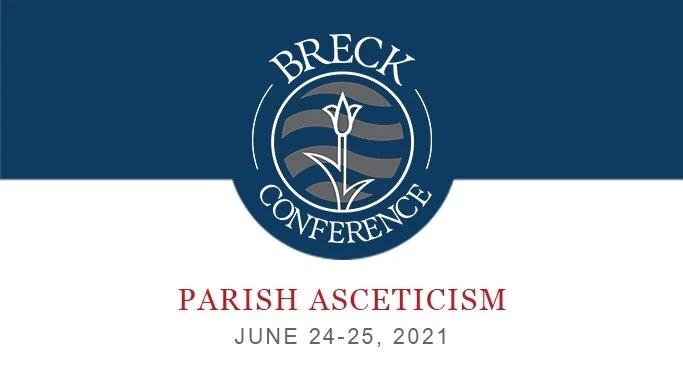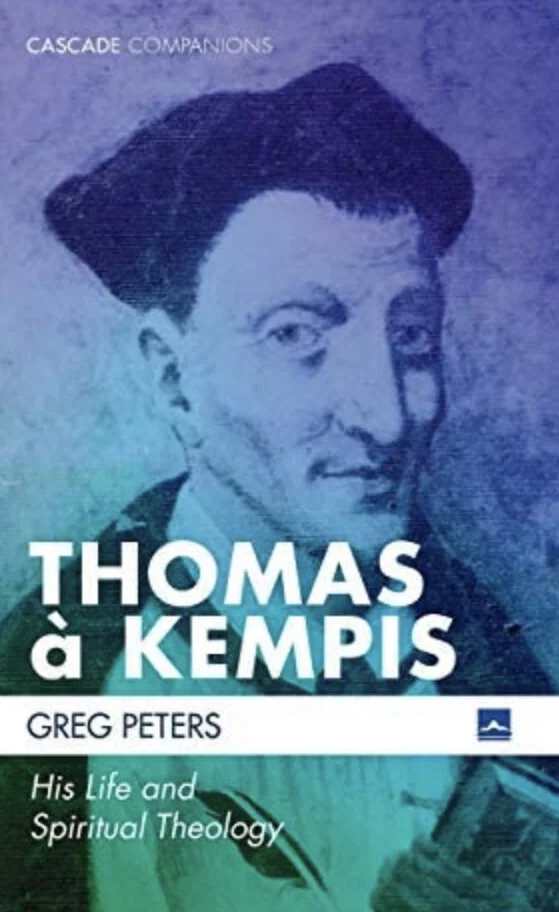Parish Asceticism: The Breck Conference 2021
By The Rev. Dr. Greg Peters, Servants of Christ Research Professor of Monastic Studies and Ascetical Theology
Just over a decade ago a book appeared with a title that is both clever and downright sinister: If You Meet George Herbert on the Road, Kill Him. The book’s author, Justin Lewis-Anthony, makes a good point despite the murderous nature of the title. Simply put, the Anglican priest-poet George Herbert (d. 1633), in his A Priest to the Temple, or, the Country Parson his Character and Rule of Holy Life, lays out an incredibly exalted vision of how an Anglican priest should live and serve in his parish. In fact, it is such a lofty vision that most folks would say it is impossible to emulate. If a priest were looking for parish work and ran across Herbert’s description of a priest as a parish job description, it is more than likely that he would not apply. And if you did manage to secure the post, you would likely fail rather quickly and/or not last long in the parish. Hence, Lewis-Anthony’s subtitle: Radically Re-Thinking Priestly Ministry.
From the start the “James Lloyd Breck Conference on Monasticism and the Church” has been about re-appropriating the past for the purposes of the present. The conference is a tangible act of ressourcement, primarily of the monastic tradition but for the church. This year’s conference theme, “Parish Asceticism,” will examine early Christian ascetic practices in order to think about how they can then be introduced into the local parish setting. Former Benedictine monk turned Anglican parish priest Luigi Gioia will present on the western tradition’s ascetical practices, and Orthodox priest and university professor Alexis Torrance will do the same for the early Christian eastern tradition.
My experience tells me that most parishioners are not overly interested in ascetical things outside of Lent and for some not even during Lent. Nonetheless, asceticism has been a traditional element of Anglican parish life for as long as there has been Anglican parish life! Mostly this is because asceticism is biblical and therefore it is part of the warp and woof of the entire Christian tradition: “So I always take pains [ἀσκῶ = engage in ascetical practices] to have a clear conscience toward God and toward men” (Acts 24:16 RSV). Asceticism is about taking pains in order to be in right relationship to God. It often hurts a bit, but the investment is well worth the return. Anglican priests know this is true (or should know that it is true) so they admonish their flock to engage in asceticism, or at least that is what we should be doing.
Let us return to George Herbert as our example even if his overall vision may be a bit too optimistic. For Herbert, “The Country Parson is exceedingly exact in his Life, being holy, just, prudent, temperate, bold, grave in all his ways. And because the two highest points of Life, wherein a Christian is most seen, are Patience, and Mortification; Patience in regard of afflictions, Mortification in regard of lusts and affections, and the stupefying and deadening of all the clamorous powers of the soul, therefore he hath thoroughly studied these, that he may be an absolute Master and commander of himself, for all the purposes which God hath ordained him” (Country Parson, Ch. 3). The parish priest is to mortify his flesh “in regard to lust and affections,” though it seems that this would be appropriate advice for all baptized Christians: “Do not love the world or the things in the world. If anyone loves the world, the love of the Father is not in him. For all that is in the world—the desires of the flesh and the desires of the eyes and pride of life—is not from the Father but is from the world” (1 John 2:15-16). And I think that Herbert would agree, for he thinks that the “two highest points” of a Christian’s visible life “are Patience, and Mortification.” Notice that Herbert writes “wherein a Christian” and not “wherein a Parson,” suggesting that his advice is certainly applicable to all Christian men and women who take God’s commandment to “be holy in all your conduct” (1 Pet. 1:15) seriously.
Further, the “Parson in his house observes fasting days; and particularly, as Sunday is his day of joy, so Friday his day of Humiliation, which he celebrates only with abstinence of diet, but also of company, recreation, and all outward contentments; and besides, with confession of sins, and all acts of Mortification” (Country Parson, Ch. 10). Again, is this not how all Christians should conduct themselves? It is true that Herbert is writing to parish priests but lest we tend toward some notion of clericalism, wherein those in Holy Orders are not only held to a higher standard but assumed to be meeting that higher standard, we must not think that the asceticism expected of the priest is not all that terribly different than what may be expected of any observant lay person. This was the teaching of the earliest Christians and it remains true today, even if the church has wrestled with the false thinking that some Christians attain a higher degree of holiness because of their vocation. Clement of Alexandria (d. 215) was wrong when he interpreted the Parable of the Sower as teaching that monks earned a hundredfold and widows sixtyfold and the ordinary lay persons a paltry thirtyfold on their spiritual investment, all because monks and widows were better than the average Christian who mucked about with money and sex.
Thus, the 2021 Breck Conference seeks to explore and understand early Christian ascetical practices so that those who serve as parish priests today can incorporate the wisdom of the past into the quotidian life of their parishes, not to mention into their own lives à la George Herbert. Whatever radical re-thinking needs to be done regarding contemporary priestly ministry, the best place to start is with the Catholic Christian tradition. The aim of the Breck Conference is to do just this!
Author of a new biography about Thomas à Kempis entitled Thomas à Kempis: His Life and Spiritual Theology (Cascade Companions, 2021), the Rev. Dr. Greg Peters is the Conference Chair of this year’s Breck Conference Parish Asceticism, June 24-25, 2021, at Nashotah House. Dr. Peters is a native Virginian who loves to travel (especially in Europe) and read. When not reading for work, he reads for fun. He enjoys the fiction of Paul Auster, Bernard Malamud, Chinua Achebe and the nineteenth-century Russian novelists. In addition, he loves the poetry of John Donne and George Herbert. When it comes to non-fiction, Dr. Peters enjoys reading anything that has to do with theology, monasticism, or the history of the Christian church. When not working or reading, he enjoys spending time with his wife Christina and two sons, Brendan and Nathanael. Dr. Peters is an ordained pastor in the Anglican tradition, serving regularly in his local parish.
About the 2021 Breck Conference: Asceticism is a subject of perennial and universal interest. Yet the language of asceticism often conjures caricatured images of emaciated monks and nuns who fled to the desert to engage in a kind of harsh asceticism that today would appear to be rooted more in psychological disorder than the love of God. The 2021 BRECK CONFERENCE ON MONASTICISM & THE CHURCH seeks to dispel that distortion by exploring the rich and varied history of true Christian asceticism, as practiced by the early Christian church and recovered as an essential element for the current church – not only for monks but for all baptized Christians. It is in the crucible of the parish that all Christians become ascetics. To find out more and to register, you may click here or the image above.


